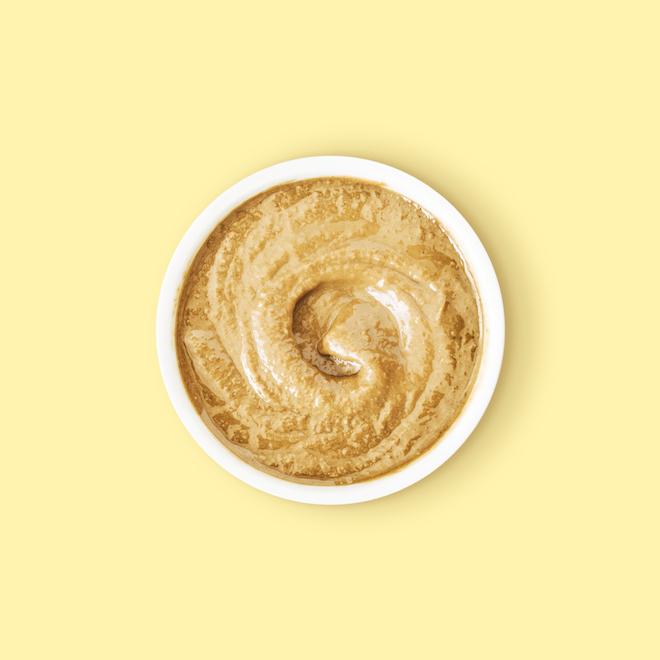Tahini




Tahini is a sesame seed paste that is popular in Middle Eastern and Mediterranean cuisine. It is made by grinding hulled sesame seeds into a smooth, creamy paste. Tahini has a nutty, earthy flavor and a slightly bitter aftertaste.
Throughout history, different cultures adapted it, often adding local ingredients like nuts or spices. For example, in Greece, tahini combines with chickpeas to create creamy hummus.
There are many tahini varieties, from light and smooth to nutty and textured. Experiment with different brands and types to find your perfect flavor.
When buying tahini, choose the light version for a smooth and mild taste and the dark version for a stronger, earthier flavor and coarser texture.
Tahini can be stored in a cool and dark place for up to 2 years but it is best to use it within one year for the best flavor and quality. If you live in a humid climate, you may want to store your tahini in the refrigerator to prevent spoilage.
Tahini can be used in a wide variety of dishes, from dips and dressings to cakes and cookies. Next time you’re making cookies try and replace some of the butter with tahini to get a bit of a nutty flavor or try mixing in some tahini into your morning coffee for an added hint of protein and fiber.
Want to make that awesome tahini dressing for your salad but you’re out of tahini? No worries, you can easily make it at home with just 2 ingredients: 1 cup hulled sesame seeds and ¼ cup water or oil. Bake sesame seeds for about 10-15 minutes at 350 degrees F, cool them down then blend with water or oil until smooth. Once your tahini is ready, you can use it all up instantly or keep sealed in an air-tight container for up to 2 weeks.
Tahini wasn't just a kitchen favorite! In some cultures, it served as currency or even played a role in traditional medicine. For instance, tahini-derived sesame oil was valued for its healing properties.
You can thin out tahini with water or lemon juice before using it. This will make it easier to mix into other ingredients.
If your tahini has separated, simply stir it until smooth.
Tahini is a good source of plant-based protein and fiber, essential for building and maintaining muscles, and promoting satiety and gut health.
It's rich in monounsaturated fats, particularly oleic acid, linked to improved heart health and reduced cholesterol levels. It also boasts vitamins like B6, magnesium, and phosphorous, crucial for bone health, energy production, and nervous system function.
While tahini offers substantial health benefits, moderation is key. It's calorie-dense due to its fat content, so enjoy it in reasonable portions.
Corrections or improvements? Email us at
content@sidechef.com